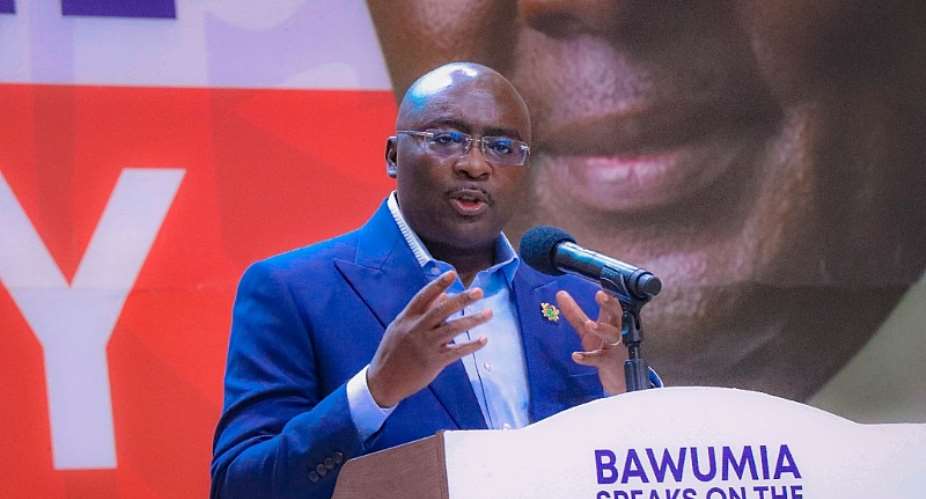Amidst the global economic landscape, the warning signals from Harvard Economist Larry Summers reverberate with particular resonance. Summers' stark assertion that US deficits are on a 'completely unsustainable path' strikes at the heart of fiscal responsibility and economic prudence. But what does this warning mean in the context of Ghana's debt crisis?
Ghana's economic predicament under the oversight of Dr. Bawumia and his economic management team is dire. Inflation surged to unprecedented levels, reaching a record 50.3 percent—the highest in 21 years. This surge in prices significantly impacted the cost of living for Ghanaians. Ghana faces a substantial budget deficit. Ghana's budget deficit stood at about 6.5 percent of GDP prior to Dr. Bawumia’s economic management team took office.
However, by the end of 2019, it had only been marginally reduced to less than 5 percent of GDP. Additionally, the currency depreciation crisis worsened in 2022, with the Ghanaian cedi losing over 50 percent of its value against the US dollar. These economic woes, combined with erratic power supply cuts, known as “DUMSOR,” a looming energy crisis, along with a staggering debt burden, paint a grim picture of Dr. Bawumia's incompetent leadership.
Dr. Bawumia, who in 2016 boldly proclaimed his expertise in stabilizing the cedi and addressing economic fundamentals. However, the stark reality contradicts his claims. The cedi's continuous depreciation against the US dollar underscores the failure of Dr. Bawumia's policies. Despite promises of stability with the so-called sham policy of the “gold for oil policy,” the cedi's value has plummeted and is now trading at 13 Ghana cedis against one United States dollar, leaving businesses and individuals grappling with diminished purchasing power and economic uncertainty.
Dr. Bawumia's claims of economic management, leadership, and competence ring hollow against the backdrop of the worsening economic crisis Ghana faces. It is obvious that the trajectory of Ghana's economy under Dr. Bawumia’s watch stands as a testament to the inadequacy of his policies and the erosion of public trust.
Despite these challenges, the insights gleaned from the Hamilton Project offer a glimmer of hope. Leading experts, including Jonathan Gruber, Jeff Liebman, and Gary Roughead, have proposed a range of policy measures to achieve responsible deficit reduction. These proposals, spanning targeted spending cuts, tax reforms, infrastructure investment, and more, offer a roadmap for Ghana to navigate its debt crisis.
As Ghana stands at a crossroads, the incoming administration headed by John Mahama and Naana Jane must heed the lessons of Dr. Bawumia’s failures and chart a new course. I am optimistic that in addition to the 24-hour economic policy proposal, John Mahama and Nana Jane must embrace the recommendations of the Hamilton Project experts to help Ghana embark on a path of fiscal responsibility and economic renewal. The time for decisive action is now, for the future of Ghana's economy hangs in the balance.
Ebenezer Ato Ntarkurfah Jackson, Cornell University, Johnson School of Business, MBA Class of 2015, [email protected]





 NDC's hypocrisy exposed as party executive implicated in registration of minors
NDC's hypocrisy exposed as party executive implicated in registration of minors
 PDS Scandal: The totality of our loss is the mess we seen in the power sector to...
PDS Scandal: The totality of our loss is the mess we seen in the power sector to...
 Ghanaians deserve better than what Akufo-Addo’s ‘yenkendi’ and cronyistic gov’t ...
Ghanaians deserve better than what Akufo-Addo’s ‘yenkendi’ and cronyistic gov’t ...
 2024 election: Bawumia is the man of the moment with his campaign style – Koku A...
2024 election: Bawumia is the man of the moment with his campaign style – Koku A...
 Election 2024: Choose to transfer power to us peacefully in your own interest — ...
Election 2024: Choose to transfer power to us peacefully in your own interest — ...
 What's the point in passing RTI law if you can't adhere to it? — MFWA quizzes Ak...
What's the point in passing RTI law if you can't adhere to it? — MFWA quizzes Ak...
 US Millennium Compact: It's disheartening for Ghana to lose $190 million power d...
US Millennium Compact: It's disheartening for Ghana to lose $190 million power d...
 My next administration will conduct a thorough investigation of PDS scandal — Ma...
My next administration will conduct a thorough investigation of PDS scandal — Ma...
 Extend deadline for limited voter registration in various university campuses — ...
Extend deadline for limited voter registration in various university campuses — ...
 May 10: Glovo closes Ghana operations, ceases services by 10pm
May 10: Glovo closes Ghana operations, ceases services by 10pm
